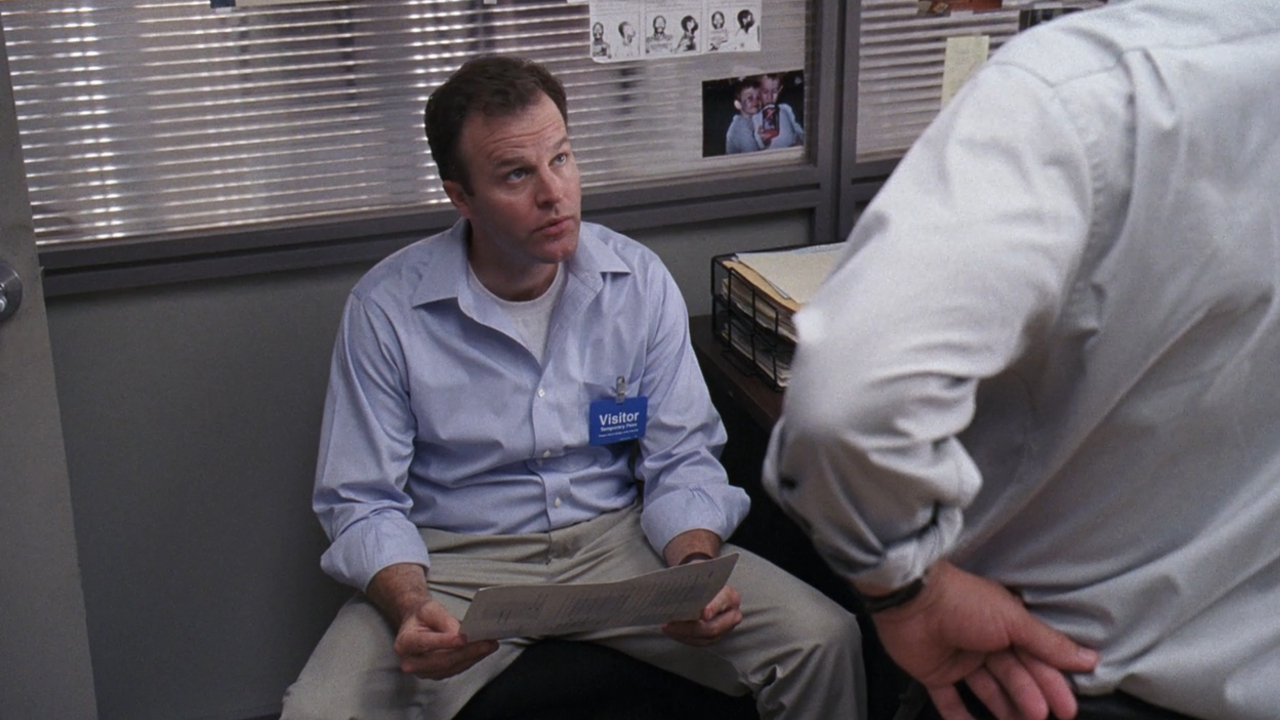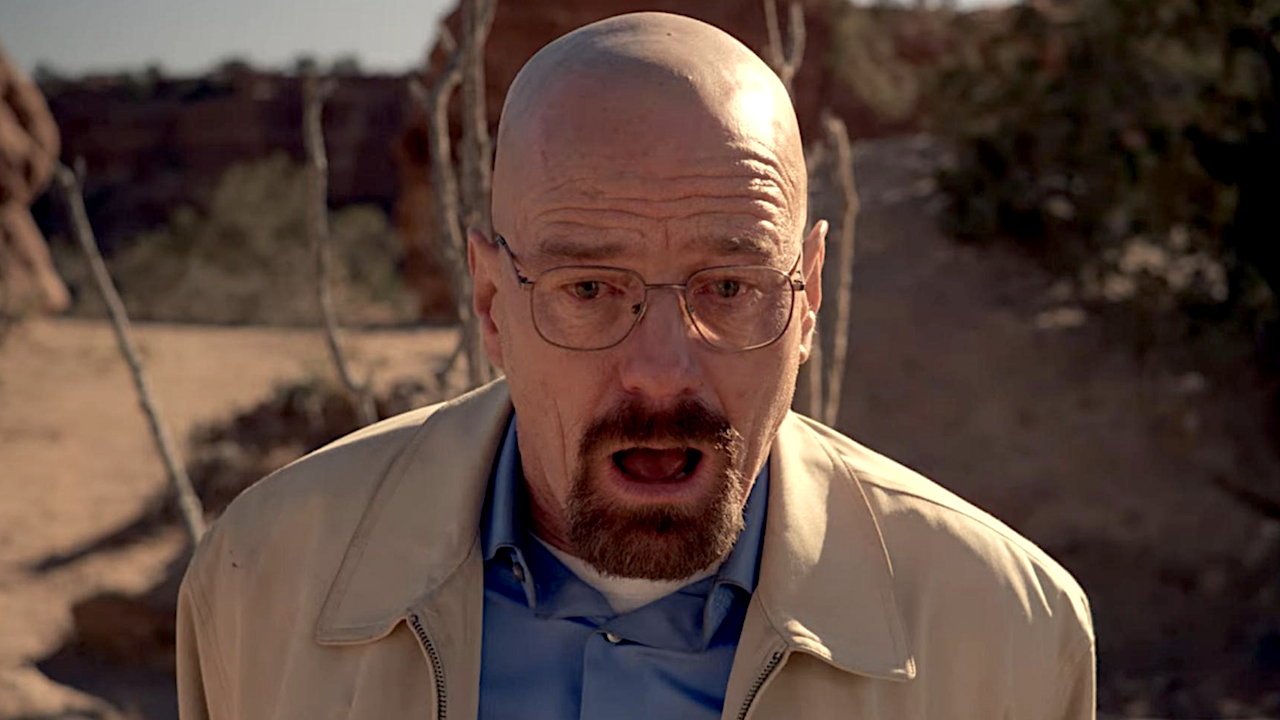Interview: Tom McCarthy Embraces Sports, Comedy, And Suburbia For Win Win

Your Daily Blend of Entertainment News
You are now subscribed
Your newsletter sign-up was successful
Tom McCarthy is convinced, despite decades of work as an actor in Hollywood, that people are pretty good when you get right down to it. Sure, we make some terrible mistakes-- the main character of his new film Win Win, played by Paul Giamatti, kicks everything off by making a really bad one-- but McCarthy genuinely believes that we're all mostly like Giamatti's Mike Flaherty, good people who eventually come around to making the right decision.
It's a remarkable attitude for someone in the movie industry to have, but one that has served McCarthy well in his three feature films as a director; in The Station Agent, The Visitor and now Win Win McCarthy takes somewhat ordinary, usually flawed characters and makes their stories fascinating simply by telling them. Win Win may be the funniest of his films, about what happens when Mike decides to take on the estate of an elderly legal client (Burt Young) for the extra cash. That simple decision leads him to take in the client's runaway grandson (played by newcomer Alex Shaffer) who just so happens to be a wrestling prodigy-- and Mike just so happens to be a coach.
I talked to McCarthy about his decision to tell a sports story when the genre has been done to death (yes, we got into The Blind Side), about revisiting wrestling, the sport he himself played in high school, and about making his movies about the fundamentally decent people he believes are everywhere. Win Win, which premiered to a lot of acclaim at the Sundance Film Festival in January, hits theaters in limited release this Friday.
You started with this wanting to make a movie about wrestling, right?
Yeah. It was less "Oh, I need to get the message out there about wrestling." I was talking with my friend and I said "There's got to be a movie in here somewhere." It's something you don't see a lot in movies, high school wrestling. Something about the type of sport it is appealed to me.
In a lot of ways this is a traditional sports movie. How did you go about telling it in your own way and avoiding sports movie cliches?
As soon as you're moving into a genre like that, even if just in terms of a storyline and not the entire movie, you are writing away from certain things. It ultimately came down to constantly assessing where we were at in the story. Worrying most about telling it and telling it well.
Your Daily Blend of Entertainment News
This is the first time you've really written for a genre.
Hold on a second… the dwarf living in a depot isn't a genre? Immigration genre movies? You don't know what the heck you're talking about. [Laughs] Yeah, it's funny when you take it on. There's so many movies that deal with a sports theme, a sports storyline. It does present a unique challenge, because you do have to cycle through everything you've seen or haven't seen. You don't want to repeat and want to keep it fresh. With wrestling we had a head start-- Vision Quest is the only wrestling movie anyone can think of. "OK, let's not do that, and do that better." Then it just became a lot of fun. Scenes that are fun in the movie were a lot of fun to write, develop, shoot. It's that intangible thing with sports stories, the reason we're drawn to sports I guess.

At what point when you were working on this did The Blind Side come along? The movies aren't similar at all when you see them, but they both kind of kick off from the same place. Did you have a panic moment on that?
I remember when it first came out I was like, "Hey, look at that movie" and my friend Joe was like, "Yeah, nothing's gonna happen with that movie." Uh-oh. I think it's a testament to how people relate to sports stories. There's something classic and fundamental about storytelling and the journey through athletics and sport. I think it makes sense to me. I don't think there's many similarities beyond the shorelines. I don't think Mike's impetus for taking in Kyle is nearly as altruistic as that was in The Blind Side. It's the polar opposite of that almost. If we can do the box office they did, everyone will be pretty happy.
There's a level of sentimentality in a lot of sports movies, and this movie is sentimental to a degree, characters trying to do right by each other, which is something you don't get a lot even in indie films. How do you get at that emotional catharsis but also steer away from sentimentality?
What's at the heart of this story I think is a decent guy, someone you might know, who's done a bad thing. Mike Flaherty has definitely done a bad thing at the top of this movie. A lot of things evolve from that action and some of those things are good things. Some of those things are good and beneficial to the greater community. When it turns out the foundation it was built on wasn't solid, it all comes tumbling down. That was really interesting to me, when decent people do bad things, and the repercussions good and bad out of that. Take a company like Enron. For many years Enron was the cornerstone of that community. Many jobs were created and lives were made and educations were paid for and philanthropic causes were supported. All these great things came out of that, until a whistle was blown and it all came tumbling down. On the micro level we're doing that with this story. Mike does something very questionable and certainly unethical and immoral, probably illegal, and all these circumstances are created as a result of that.
Every character in the movie is kind of a mensch-- they do bad things, but there's this fundamental menschiness at the heart of them.
Most of the people I know are pretty decent people, even the people I don't like. I don't know a lot of just bad people. That to me seems honest, especially dealing with the world we're in. We all have that dark side to us, I know we all want to believe we don't. I think that's what the struggle is about, what religion is based on, our struggle between good and bad.
The Visitor really blew up, in a way that I think surprised most people. How did that impact where you went with Win Win?
The Visitor was obviously more of a drama, and it was a delicate movie. I really wanted to have some fun with this. I felt like I wanted to go the other way, mix it up, have a few more laughs. Not that I didn't have fun making The Visitor, but this was a different experience in a lot of ways. The story, the amount of characters, just the busyness of Mike Flaherty's life. That was the challenge, what to do next. This felt like that next step.
Staff Writer at CinemaBlend

